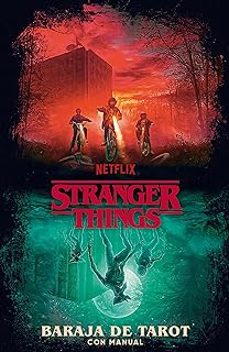📗 Libro en inglés ARTIFICIAL INTELLIGENCE
DK- 9780241404836
Sinopsis de ARTIFICIAL INTELLIGENCE
After reading Mitchell s guide you ll know what you don t know and what other people don t know even though they claim to know it And that s invaluable The New York Times A leading computer scientist brings human sense to the AI bubbleNo recent scientific enterprise has been so alluring terrifying and filled with extravagant promise and frustrating setbacks as artificial intelligence Writing with clarity and passion leading AI researcher Melanie Mitchell offers a captivating account of modern day artificial intelligence Flavoured with personal stories and a twist of humour Artificial Intelligence illuminates the workings of machines that mimic human learning perception language creativity and common sense Weaving together advances in AI with cognitive science and philosophy Mitchell probes the extent to which today s smart machines can actually think or understand and whether AI even requires such elusive human qualities at all Artificial Intelligence A Guide for Thinking Humans provides readers with an accessible and clear eyed view of the AI landscape what the field has actually accomplished how much further it has to go and what it means for all of our futures
Ficha técnica
Editorial: Dk
ISBN: 9780241404836
Idioma: Inglés
Número de páginas: 448
Tiempo de lectura:
9h 16m
Encuadernación: Tapa blanda
Fecha de lanzamiento: 01/01/2020
Año de edición: 2020
Especificaciones del producto
Escrito por Mélanie Mitchell
Los Ángeles (EE.UU), 1969. Científica estadounidense, catedrática Davis de Complejidad en el Instituto Santa Fe y profesora en la Universidad Estatal de Portland. Sus principales trabajos se han desarrollado en los ámbitos del razonamiento analógico, los sistemas complejos, los algoritmos genéticos y los autómatas celulares, y sus publicaciones en esos campos se citan con frecuencia. Se doctoró en 1990 en la Universidad de Míchigan con Douglas Hofstadter y John Holland, para quienes desarrolló la arquitectura cognitiva Copycat. Es autora de varios libros, como Analogy-Making as Perception (2003), un libro sobre Copycat; An Introduction to Genetic Algorithms (1996); Complexity: A Guided Tour (2009), que ganó el premio Phi Beta Kappa Science Book Award 2010, e Inteligencia artificial. Su interés por la inteligencia artificial se despertó en la universidad cuando leyó Gödel, Escher, Bach, de Douglas Hofstadter. Mitchell desarrolló la plataforma Complexity Explorer para el Santa Fe Institute, donde más de veinticinco mil estudiantes siguieron su curso de Introducción a la Complejidad. Participa regularmente como experta invitada en el Learning Salon, un encuentro interdisciplinar en línea sobre inteligencia biológica y artificial. En 2020, recibió el Premio Herbert A. Simon. Aunque ha expresado su firme apoyo a la investigación en IA, Mitchell ha manifestado su preocupación por la vulnerabilidad de la IA a la piratería informática, así como por su capacidad para heredar prejuicios sociales.
Descubre más sobre Mélanie Mitchell Recibe novedades de Mélanie Mitchell directamente en tu email
Opiniones sobre ARTIFICIAL INTELLIGENCE
¡Sólo por opinar entras en el sorteo mensual de tres tarjetas regalo valoradas en 20€*!






























